Tie Rod Replacement RWD
Tools Required
| • | J 6627-A Tie Rod Puller |
| • | J 24319-B Steering Linkage and Tie Rod Puller |
| • | J 29193 Steering Linkage Installer (12 mm) |
Removal Procedure
Important: Use the proper tool in order to separate all of the tie rods and the ball joints.
- Raise the vehicle. Refer to Lifting and Jacking the Vehicle in General Information.
- Remove the cotter pin and the castellated nut from the outer tie rod.
- Remove the prevailing torque nut from the inner tie rod.
- Use the J 24319-B in order to remove the outer tie rod ball stud from the steering knuckle.
- Use the J 6627-A in order to remove the inner tie rod from the relay rod.
- Loosen the adjuster tube clamp bolts (3).
- Unscrew the tie rod ends from the adjuster tube (4).
- Remove the inner tie rod ends (5) from the adjuster tube (4).
- Inspect the following components for damage:
- Clean the threads on the ball stud and in the ball stud nut.
- Clean the tapered surfaces.
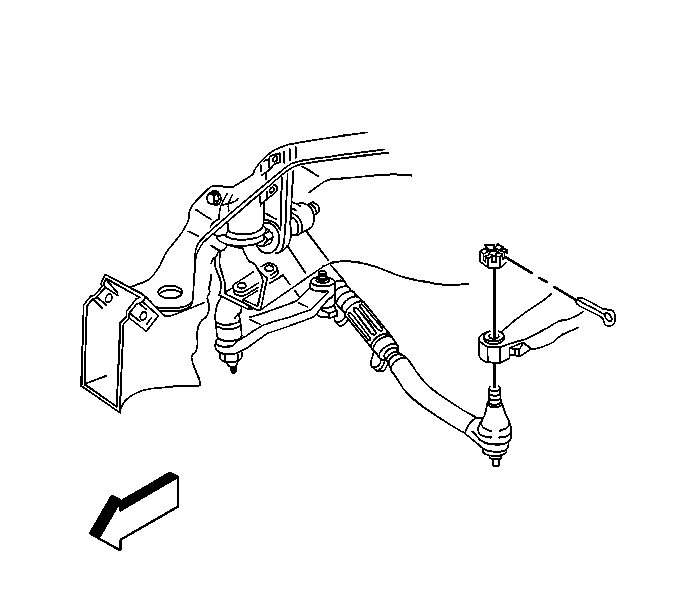
Discard the prevailing torque nut.
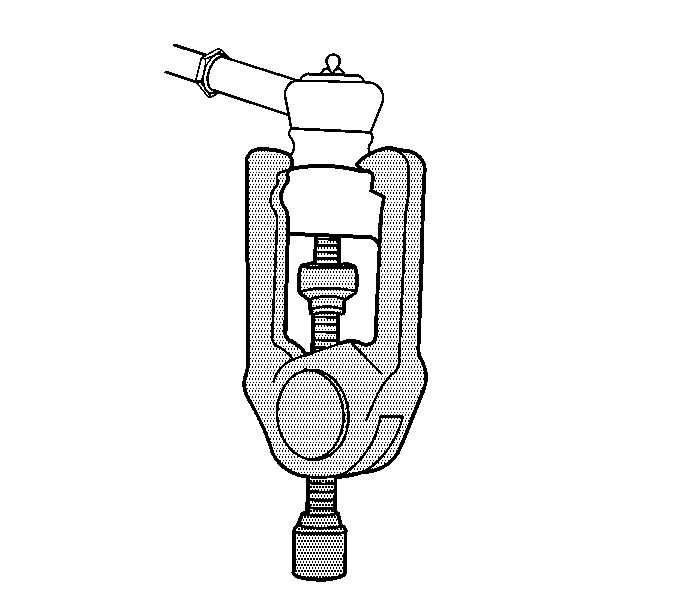
Notice: Do not attempt to disconnect a steering linkage joint by driving a wedge between the joint and the attached part. Seal damage may result which will cause premature failure of the joint.
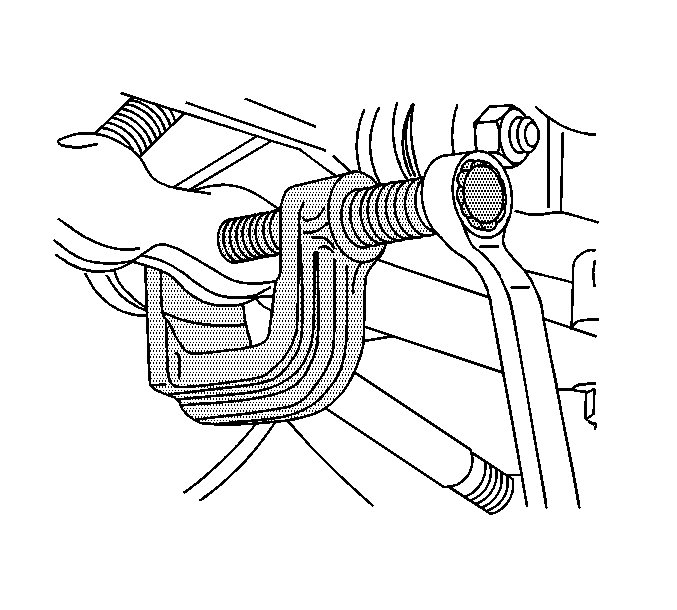
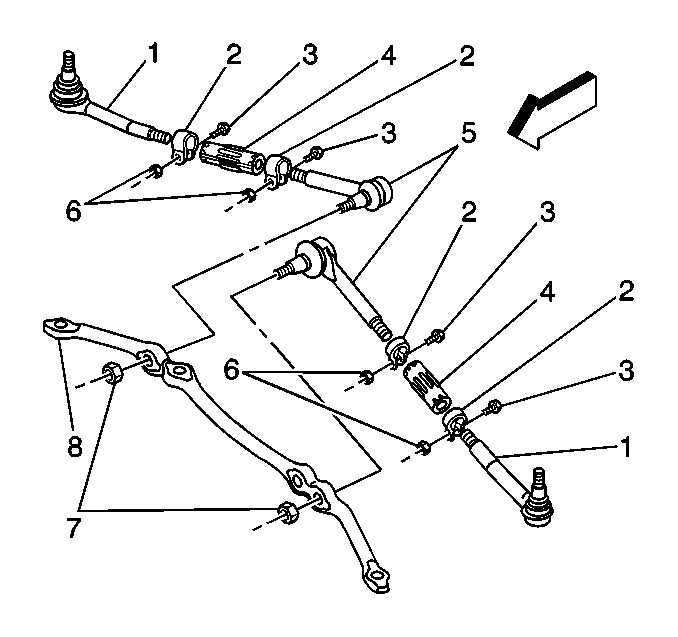
| • | The threads on the tie rod (1, 5) |
| • | The ball stud threads |
| • | The adjuster tube (4) for bending or damaged threads |
| • | The tie rod end seals for excessive wear |
Installation Procedure
Lubricate the tie rod threads with chassis lubricant if the tie rod ends were removed from the adjuster tube. Refer to Fluid and Lubricant Recommendations in Maintenance and Lubrication.
- Loosen the clamps (2) on the adjuster tube (4).
- Install the tie rod ends to the adjuster tube (4).
- Use the J 29193 in order to install the inner tie rod to the relay rod.
- Remove the J 29193 .
- Install the new prevailing torque nut to the inner tie rod.
- Install the outer tie rod ball stud to the steering knuckle.
- Install the castellated nut.
- Install the new cotter pin.
- Lower the vehicle.
- Adjust the toe-in. Refer to Front Toe Adjustment in Wheel Alignment.

The number of threads on the inner tie rod (5) and the outer tie rod (1) ends must be equal within 3 threads.
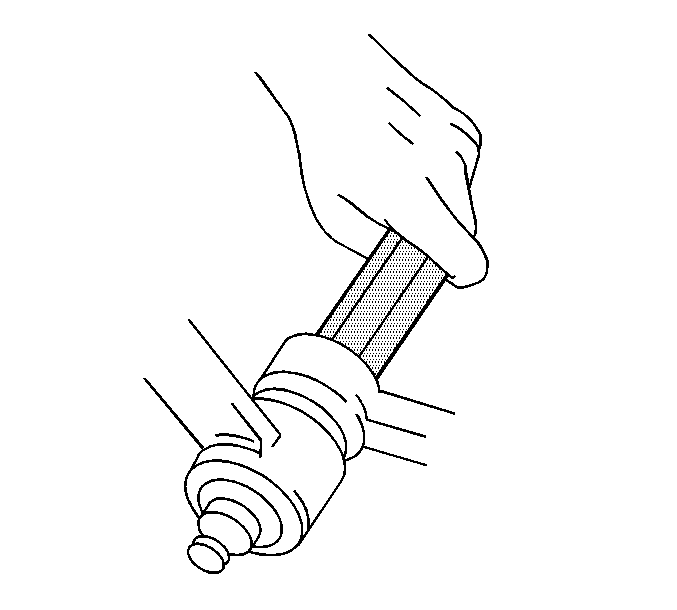
Notice: Use the correct fastener in the correct location. Replacement fasteners must be the correct part number for that application. Fasteners requiring replacement or fasteners requiring the use of thread locking compound or sealant are identified in the service procedure. Do not use paints, lubricants, or corrosion inhibitors on fasteners or fastener joint surfaces unless specified. These coatings affect fastener torque and joint clamping force and may damage the fastener. Use the correct tightening sequence and specifications when installing fasteners in order to avoid damage to parts and systems.
Ensure that the seal is on the stud.
Tighten
Tighten the J 29193
to 54 N·m (40 lb ft) in order to seat the tapers.
Tighten
Tighten the prevailing torque nut to 47 N·m (35 lb ft).

Ensure that the seal is on the stud.
Important: Tighten the castellated nut up to an additional 1/6 amount in order to insert the cotter pin through the outer tie rod ball stud. Do not back the nut off in order to align the cotter pin hole.
Tighten
Tighten the castellated nut to 47 N·m (35 lb ft).
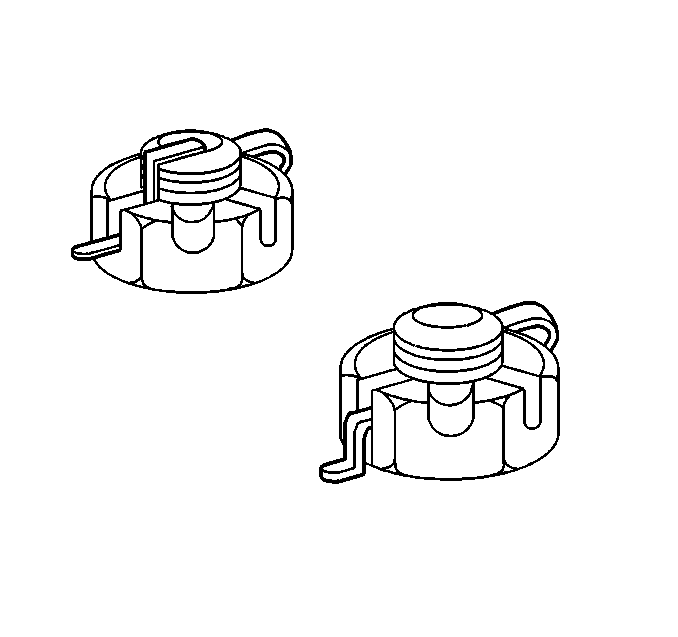
Bend the cotter pin ends flat against the nut flats.
Tie Rod Replacement AWD
Tools Required
| • | J 6627-A Tie Rod Puller |
| • | J 24319-B Steering Linkage and Tie Rod Puller |
| • | J 29193 Steering Linkage Installer (12 mm). |
Removal Procedure
Important: Use the proper tool in order to separate all of the tie rods and the ball joints.
- Raise the vehicle. Refer to Lifting and Jacking the Vehicle in General Information.
- Remove the cotter pin and the castellated nut from the outer tie rod.
- Use the J 24319-B in order to remove the outer tie rod from the steering knuckle.
- Remove the prevailing torque nut from the inner tie rod.
- Use the J 6627-A in order to remove the inner tie rod from the relay rod.
- Loosen the adjuster tube clamp bolts (3).
- Unscrew the tie rod ends (1, 5).
- Remove the tie rod ends (1, 5) from the adjuster tube (4).
- Inspect the following components for damage:
- Clean the threads on the ball stud and in the ball stud nut.
- Clean the tapered surfaces.


Notice: Do not attempt to disconnect a steering linkage joint by driving a wedge between the joint and the attached part. Seal damage may result which will cause premature failure of the joint.

Discard the prevailing torque nut.
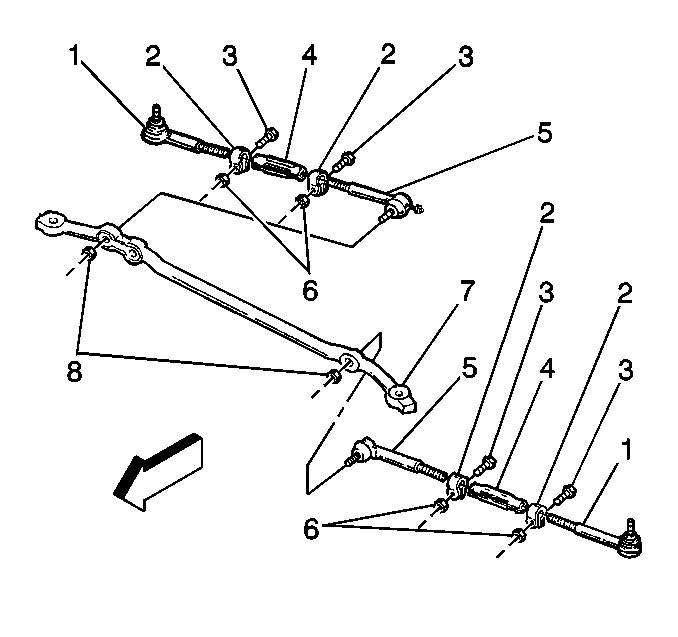
| • | The threads on the tie rod (1, 5) |
| • | The ball stud threads |
| • | The adjuster tube (4) for bending or damaged threads |
| • | The tie rod end seals for excessive wear |
Installation Procedure
Lubricate the tie rod threads with chassis lubricant if the tie rod ends were removed from the adjuster tube. Refer to Fluid and Lubricant Recommendations in Maintenance and Lubrication.
- Loosen the clamps (2) on the adjuster tube (4).
- Install the tie rod ends to the adjuster tube (4).
- Use the J 29193 in order to install the inner tie rod to the relay rod.
- Remove the J 29193 .
- Install the new prevailing torque nut to the inner tie rod.
- Install the outer tie rod to the steering knuckle.
- Install the castellated nut.
- Install the new cotter pin.
- Lower the vehicle.
- Adjust the toe-in. Refer to Front Toe Adjustment in Wheel Alignment.

The number of threads on the inner tie rod (5) and the outer tie rod (1) ends must be equal within 3 threads.

Notice: Use the correct fastener in the correct location. Replacement fasteners must be the correct part number for that application. Fasteners requiring replacement or fasteners requiring the use of thread locking compound or sealant are identified in the service procedure. Do not use paints, lubricants, or corrosion inhibitors on fasteners or fastener joint surfaces unless specified. These coatings affect fastener torque and joint clamping force and may damage the fastener. Use the correct tightening sequence and specifications when installing fasteners in order to avoid damage to parts and systems.
Ensure that the seal is on the stud.
Tighten
Tighten the J 29193
to 54 N·m (40 lb ft) in order to seat the tapers.
Tighten
Tighten the prevailing torque nut to 47 N·m (35 lb ft).

Ensure that the seal is on the stud.
Important: Tighten the castellated nut up to an additional 1/6 amount in order to insert the cotter pin through the outer tie rod. Do not back the nut off in order to align the cotter pin hole.
Tighten
Tighten the castellated nut to 49 N·m (36 lb ft).

Bend the cotter pin ends flat against the nut flats.
